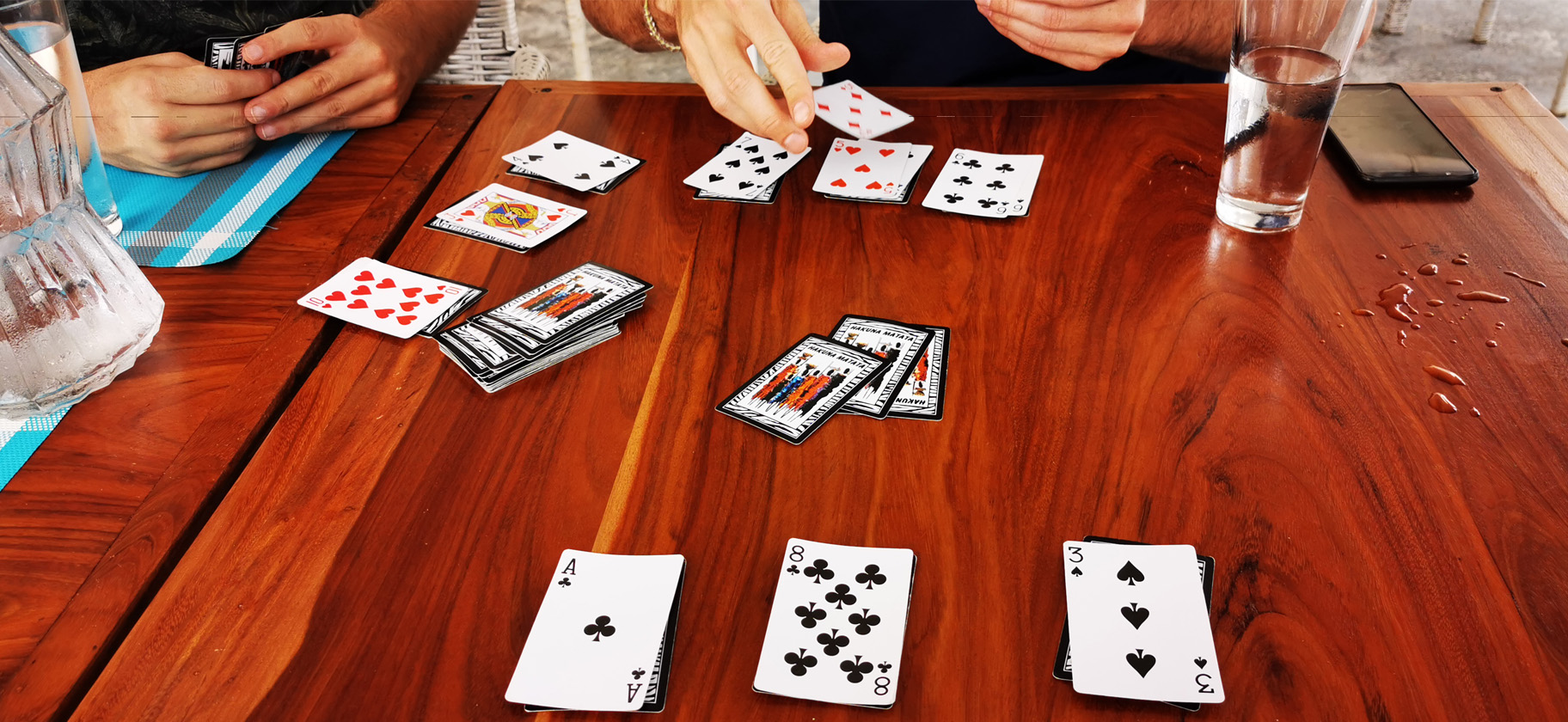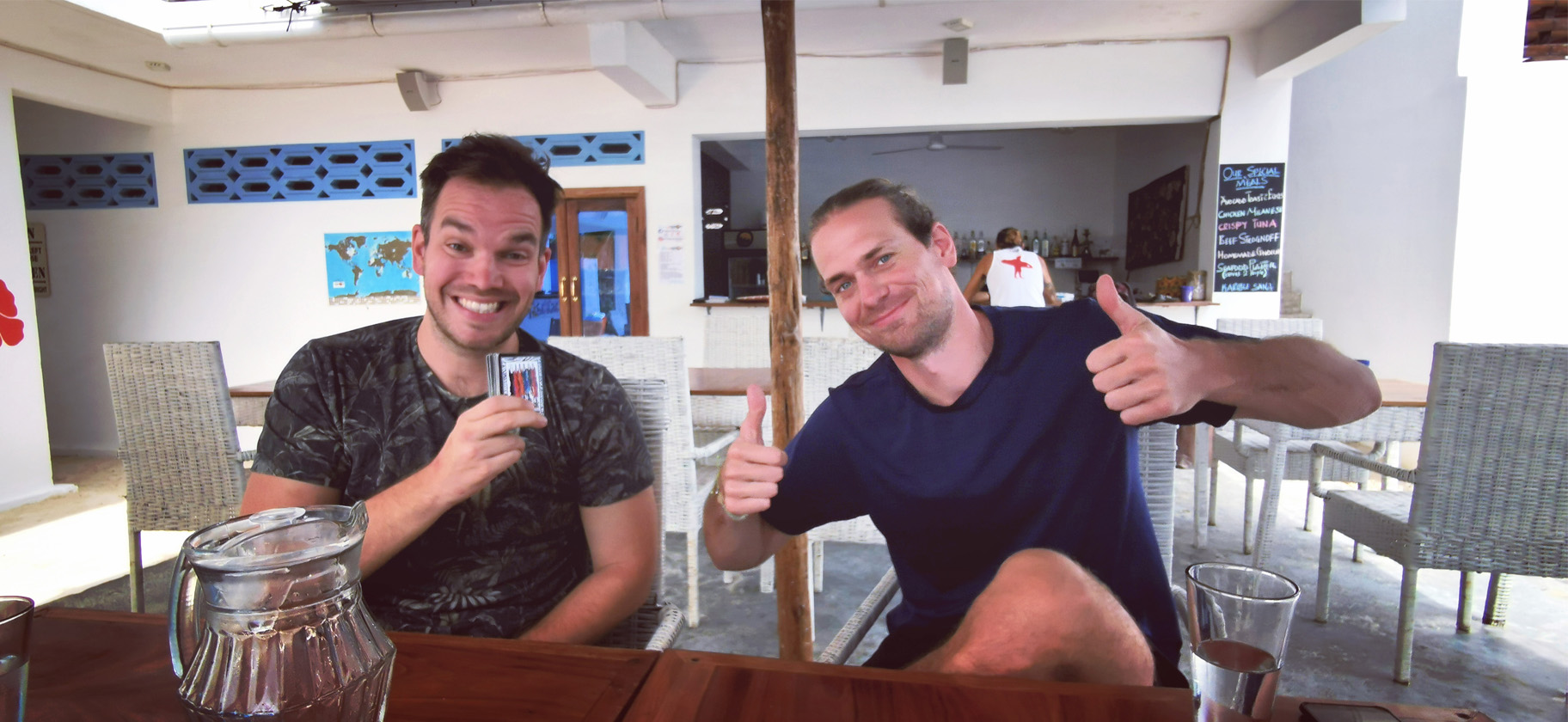Shithead

Things have changed in the twenty years since I first started travelling. Technology is the most obvious area of great change now that everyone is connected all the time through social media and their smartphones. It’s easier now to get around than it has ever been and though I used to revel in the thrill of travelling into a new destination with no idea of what to do or where I would rest my head, now even I have succumbed to relying on various apps to schedule out how I will travel from place to place, scope out deals, and book my lodgings in advance of my arrival. In my twenties, green but optimistic, I could travel in relative darkness and secrecy, sending meaningful handwritten letters home to mum and dad or close friends and occasionally sending out a mass email to my contacts should something truly noteworthy have happened. Now it’s difficult to go more than 24 hours without my mother hunting me down on messenger wanting to Facetime and get updates on what I’ve been up to. There’s also the habit of constantly updating Facebook, scrolling through my feed, tapping on various news items that I get alerts for, posting on Instagram, and getting newsworthy as well as not-so-newsworthy videos funnelled into my youtube channel. Plus, in order to effectively run my little business, every small crisis is just a notification away. I can be halfway around the world, but I’m still not very far away.
More than how technology has changed is how I have changed. I used to travel on a pittance. Depending on where I was, my budget could be as low as pennies a day. I’d hitchhike to get about, I’d sleep in dorms or on park benches or rail station floors, and subsist on bread and peanut butter or pasta cooked in Knorr soup mix packets. Flights, a meal of local food at a restaurant, a room to myself – these were luxuries beyond my means twenty years ago and reserved for only the most special occasions. Today, I remark that somewhere along the line I graduated from being a budget to a mid-range traveller. Now I won’t think twice about paying extra for a queen bed over a twin, I fret over the duration of travel and departure and arrival times far more than I concern myself with cost, and sampling all of the fruits of the local cuisine from street cart to Michelin starred bistro is built into what I enjoy most about travelling.
A consequence of my more mature way of travelling is that I now find myself more socially distant from other travellers. We all used to read the same Lonely Planet guides and would all invariably congregate at the same youth hostels. Youth hostels were not only cheap places to stay, but they were also a great way to meet other travellers, socialize, share travel stories and tips, and if you played your cards right, get lucky. Somewhere during those early adventures, I learned a card game that all seasoned backpackers instinctively knew how to play – it was called “Shithead”. The moment you would spot other backpackers you would say hello, grab a drink, break out a deck of cards and start up a game. It was like a reflex. And in the event you met another traveller who by chance did not know how to play, it was your duty to teach them.
As the years passed and with my backpacking days a decade gone I forgot the rules of how to play Shithead. In Zanzibar, there was no avoiding other travellers as the local community and foreigners were so distinctly separated from one another, and one morning while having my complimentary breakfast I looked over to the table next to me and saw an astonishing sight: There were two men sitting together not looking at their cell phones. At first, I couldn’t decipher what was so odd about the sight of them only that something felt out of place. That was until I remembered that people used to do this very activity; They would sit in relative silence with their minds completely focused on a non-digital activity, in this case, a game of cards.
I had a hunch and asked what game they were playing. One of them, through a thick Nordic accent, said: “You know I’m not sure of the actual name of the game, but we call it ‘Shithead’”.
This was how I met Daniel and Anton. Daniel and Anton were friends from Sweden in their twenties who knew each other from playing basketball together since they were in high school. They were on vacation and just happened to be staying at the same hotel as me and I told them about how I used to play this game and asked if they would teach me.
The rules of Shithead are as follows:
Each player is given 3 cards that are laid face down. Each player is then given 3 cards that are laid face-up on top. Each player is then given 3 cards to hold in their hand. Before the game begins you may switch the cards lying face up with any of the cards in your hand, the objective being to have the cards laying face up being the strongest cards in the game available to you so that, when it comes time, they are easy to play them. Should you have doubles of a card you may lay doubles face up and should this leave you with you two cards in your hand, you will need to draw another card from the deck so that you have 3 cards in your hand. This gives the player another opportunity to create the strongest set of three cards facing up.
The game begins with whoever has the 3 of clubs. If no one has the 3 of clubs, then whoever has a 3 or the next lowest card whatever it may be starts the game. Travelling clockwise each player must play a card (or cards) of equivalent value or higher on top of the previously played card. When a card is played, because every player must always have 3 cards in their hand, they must then draw an equivalent number of cards from the deck that they just played. So, if a player plays only one card, then they draw only one card, if they play 2 cards then they draw 2 cards from the deck. If a player has more than 3 cards in their hand, then they do not need to draw from the deck after they play. If a player is unable to play a card from their hand of equivalent or higher value, they may take a chance card from the deck hoping that it is able to play. If it is still not of equivalent or higher value than the card that was last played that player must pick up all the cards that have been played. A typical round between players A, B, and C may run as follows:
Player A plays the 3 of clubs and draws one from the deck.
Player B plays the 4 of diamonds and draws one from the deck.
Player C plays the 7 of hearts and draws one from the deck.
Player A plays the 9 of clubs and the 9 of hearts and draws two cards from the deck.
Player B plays the Queen of spades and draws one from the deck.
Player C plays the Queen of diamonds and draws one from the deck.
Player A, holding no cards of equal or higher value than the Queen draws a chance card from the deck. An Ace! It plays. Since they still have 3 cards, they do not draw a card from the deck.
Player B, holding no cards of equal or higher value than the Ace draws a chance card from the deck. A 6 which does not play meaning they must now pick up the entire pile of cards meaning they will have their original 3 cards, the chance card, as well as the 8 other cards that were previously played.
With the goal being to be left without any cards to play having 12 in your hand puts the player at a major disadvantage.
There are 2 wild cards: Tens and twos. A 10 can be played at any time and clears the board of all of the cards that had been previously played. Twos can be played on top of any card (except a 10 which clears the board anyway) and resets the board meaning the next player can play a card with as low a value as a 3.
An important strategy to note is that whoever clears the board with a 10 plays again starting the next count of the board. There is another way to clear the board and that is by having all 4 of the same valued card played at the same time. For example, Player A could play her 9 of clubs and 9 of hearts, and Player B could follow that by playing the 9 of spades and the 9 of diamonds clearing the board. Player B would then start the board again. If a player has more than 3 cards in their hand and all four cards of a particular value, should they have the chance to play them, can choose to play all four at once and clear the board and then start again.
If a player is unable to play, it is the next player who starts the game again. In the case above, because Player B was unable to play, so it is Player C who restarts the game.
This brings us to the end game. As the game unfolds, the cards in the deck will eventually run out. If a player has no more cards left in their hand they can play from the cards that were laid in front of them beginning with the ones that are face up. Once all of the face-up cards have been played a player can then take a chance to play the cards that are face down. Unlike with the cards that were facing up with the intention at the start of the game of being strong cards, the cards laid face down are unknown and often difficult to play meaning the player will be left with a greater probability of having to pick up all of the previously played cards. Players restarting the board before a player with only face down cards may, as a strategy, not open with their lowest card but, instead, something of higher value like a 9, decreasing the odds that the unknown card will be able to play and thereby slow the opponent’s progress to getting rid of all of their cards. If a player is able to get rid of all of their face down cards they are safe, but a player may not end their game on a 10, 2, or an ace. Should they attempt to play their last card with one of these they must take the stack of all of the previously played cards that remain on the board.
Whichever player is unable to get rid of all of their cards is declared the “shithead” and it is their duty to shuffle and deal the cards for the next round. Once the cards are dealt, they also start the game again with the lowest card in their hand. Punishments for being the shithead can extend as far as the participants agree and it was common for the shithead to be responsible for paying for the round of shots that would precede each round of the game. That’s the beauty of “Shithead”, there are no winners, there’s only one shithead.
